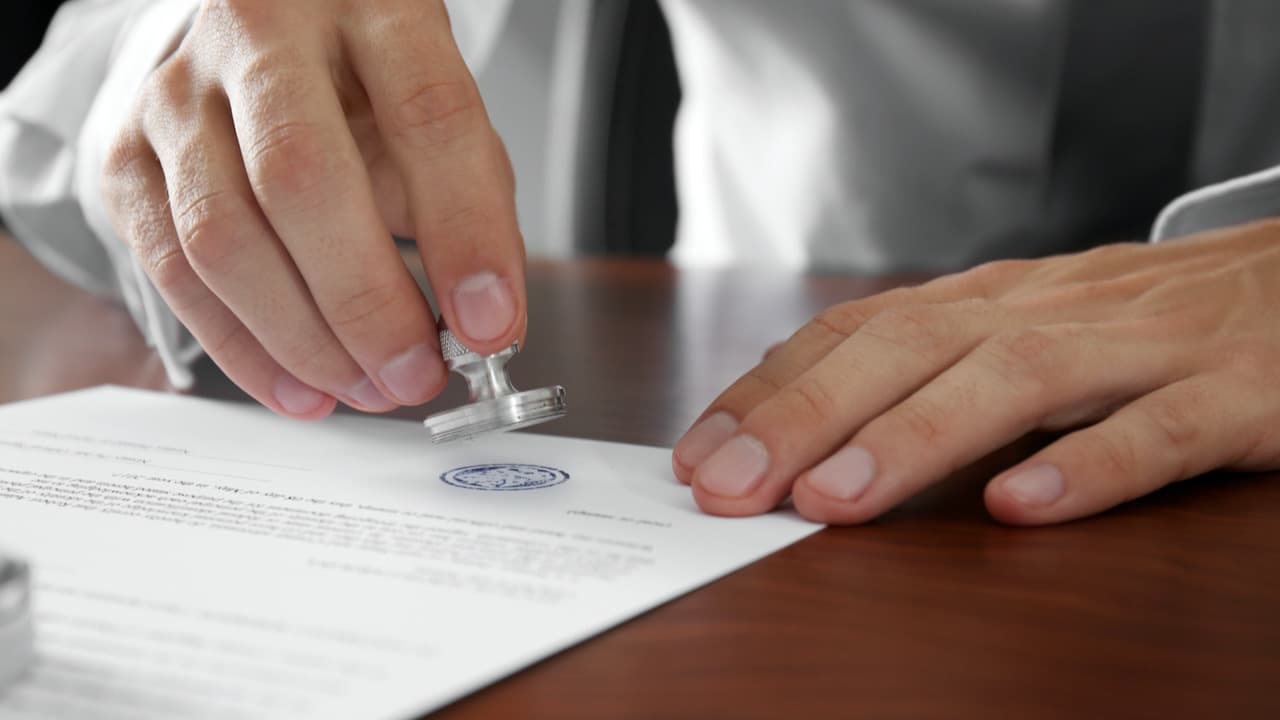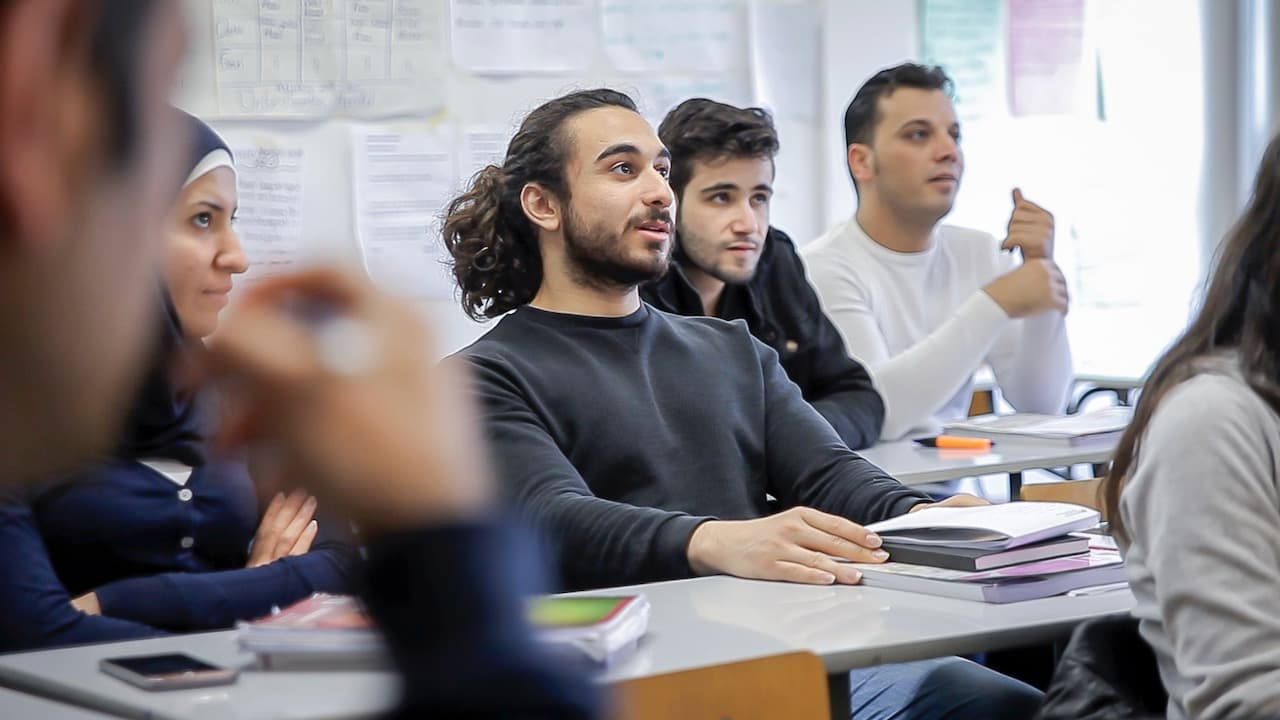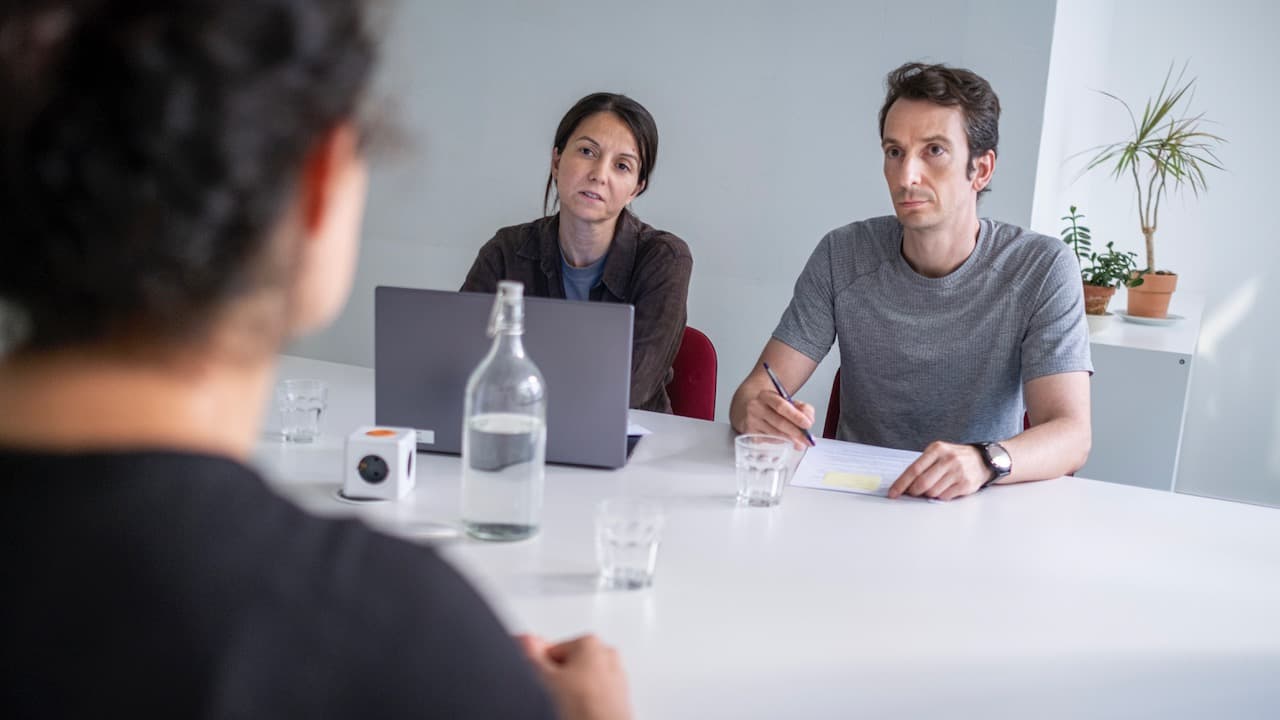Visa and residence permit for the recognition of professional qualifications

Can I attend qualification programmes in Germany?
Recognition of foreign qualifications enables those who have completed their training abroad to work in their profession in Germany. The recognition process takes place at the so-called "recognition offices "("Anerkennungsstelle"). However, foreign qualifications occasionally do not meet all the necessary criteria for full recognition. When that is the case, you can attend a qualification programme in Germany, such as a technical training course or a job-related German course. To participate in qualification programmes in Germany, you need a corresponding entry visa and must later apply for a residence permit in accordance with §16d Residence Act in Germany.
Good to know: If you would like to have your qualifications recognised in order to work in Germany, you can also apply for a residence permit in accordance with Section 16d (3) Residence Act. To do so, you must prove the job in question is a qualified job. (There are individual exceptions or exemptions for church work or care-related professions).
You can also obtain a residence permit if you wish to undergo a so-called “Qualifikationsanalyse” (qualification analysis) or take part in an examination in Germany. This type of residence permit is issued for a maximum of 6 months. You will usually also need A2 (CEFR) language skills, depending on your qualifications. In addition, you must be able to prove that you have already been invited to a ‘qualification analysis’.
What do I need to know?
Can I obtain a visa to have my professional qualifications recognised?
First, you have to submit your foreign professional qualification from your home country to a competent authority. If the competent authority decides that a further qualification is necessary for the recognition and you can prove sufficient knowledge of German (A2), you can obtain the qualification required in Germany.
Where can I submit my foreign professional qualification for recognition?
You can find a competent authority to recognise your qualifications at anerkennung-in-deutschland.de. You can also seek advice in advance. Under “Beratung im Ausland“, you will find local addresses for some countries. Alternatively, you can use the make-it-in-Germany contact form or the “Working and Living in Germany” hotline on +49 30 1815 1111 for information. The employees speak German and English and can be reached Monday to Friday from 8 a.m. to 4 p.m. CET. Please note that a call abroad usually costs money.
You can learn more about recognition in our chapter “Recognition of foreign professional qualifications”.
Where do I apply for a visa?
If you need a visa to enter Germany, you must apply at the German embassy/consulate in your country of residence or a neighbouring country.
Please note that your visa application can take several months to process.
If you do not need a visa to enter Germany, report to the Immigration Office at your new place of residence after your entry. There, you can apply for a residence permit to have your foreign professional qualifications recognised.
Whether you need a visa depends on your country of origin. On auswaertiges-amt.de, you will find a list of countries whose citizens need an entry visa to come to Germany.
Important for Afghan citizens:
Special rules apply to people from Afghanistan when applying for a visa to Germany. Since there is no German embassy in Afghanistan, visa applications can normally only be submitted to the German embassy in Islamabad (Pakistan) or Tehran (Iran- currently closed).
If you wish to apply in another country (e.g., India, Turkey, Uzbekistan, or Tajikistan), you must have lived there for at least 6 months with a valid residence permit. Without such a residence permit, it is not possible to submit the application in another country.
Please note: The process, required documents, and processing time may differ from the general information, often take significantly longer, and in some cases lead to rejection.
What documents do I need for a visa/residence permit?
In our chapter “National Visa”, you will find a list of all documents third-country nationals need for a national visa.
For a visa for the recognition of foreign professional qualifications, you will also need the following documents:
- Proof from the relevant recognition office that a further qualification is necessary.
- Certificate of the foreign professional qualification or university degree
- Registration for the corresponding qualification programme.
- Proof of your German language skills. In principle, you need at least A2.
- Proof that your livelihood is secured through your own means for the duration of the qualification programme. You can prove it either in the form of a blocked account with at least €1,091 per month (as of 2025) or by submitting a “declaration of commitment”. You can find out more in our chapter on “Declaration of Commitment for a National Visa”.
If you would like to complete the qualification programme as part of an employment, you will also need:
- your employment contract
and
- a letter from your employer stating that you will complete the qualification as part of your work.
Good to know: The blocked account (“Sperrkonto ”) is one of the ways of proving that you have sufficient financial resources. If you attend a qualifying programme in Germany to have your professional qualifications fully recognised, you are obliged to pay and keep a certain minimum amount in the account. In 2025, the minimum amount is €1,091 for each month you stay here. This money will remain blocked in the account until you arrive in Germany. Another special feature of the blocked account is that you cannot withdraw or transfer unlimited amounts of money. You may withdraw a maximum of €1,091 per month (unless you have deposited more than the required minimum amount).
What happens after entering the country?
After entering the country, you must report to the Immigration Office at your new place of residence within three months and apply for a residence permit. To do so, you must submit the documents mentioned above as well as, in principle, a police registration certificate and a rental agreement. The authorities will check your papers and then decide whether you can receive a residence permit.
A residence permit issued for participation in additional qualifying programmes is generally valid for up to 24 months. It can be extended by a maximum of 12 months if your qualification programme ends later than expected, for instance, because you have to retake an exam.
Important: After entering Germany, you must have your visa converted into a residence permit. It is best to do so in good time, as the visa is often not valid for long, and the Immigration Office often take a long time to issue an appointment.
Can I work alongside the qualification programme?
In addition to your qualification measure, you can work for up to 20 hours a week. If you already have a specific job offer from a company for a job in your profession, you can also work for this company for more than 20 hours per week. However, the Federal Employment Agency must first give its approval. To do so, you must present the job offer there - the employees of the Federal Employment Agency will check the job offer and then issue you with a work permit for that specific job. You can find the address of the Federal Employment Agency in your area at arbeitsagentur.de.
What happens after the completion of the qualification programme?
After successfully finishing the qualification measure, if you have already found a suitable job, vocational training programme or university programme, you can apply for a residence permit as a skilled worker or trainee or student. You can do so directly at the Immigration Office responsible for you.
Please note: You must report to the Immigration Office in good time and submit the relevant applications before your residence permit expires!
If you have not yet found a job, you can apply for a residence permit to look for a job according to §20 Residence Act. You can apply for it directly at the Immigration Office responsible for you.
Important
You can learn more about recognition in our chapter “Recognition of foreign professional qualifications”. To find out more about job hunting, check out our chapter “Job Hunting and Application”.
Similar topics
Additional links
German Embassies Worldwide
Here you can find the German embassy in your country.
Recognition in Germany
Here you can find helful tips on how to have your professional certificates recognised in Germany.
Visa for Germany
Here you can learn about visa requirements for Germany.
Employment Agency Nearby
Here you can search for your local Employment Agency ("Arbeitsagentur").
Make it in Germany
Here are some tips (in several languages) on how to enter the German job market.
Make it in Germany
Which professional qualifications are to be recognised in Germany? Learn more on the website of Make it in Germany.
Netzwerk IQ
Netzwerk IQ can help you have your professional certificates recognised in Germany.
Our community in the forum
Quickly find answers to any question. Benefit from the experience of your community and exchange ideas.
Support on site
Are you looking for counseling centers, meeting points, and other services? Use our search engine.












